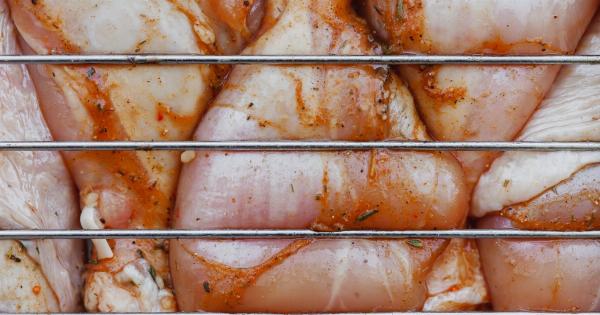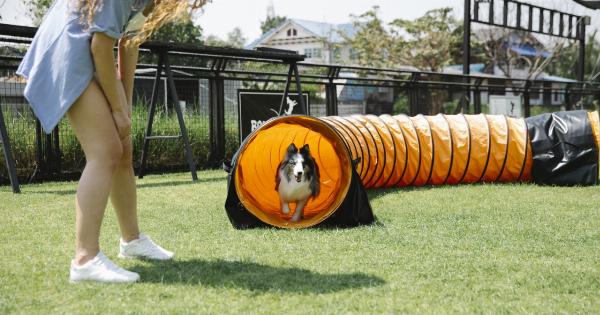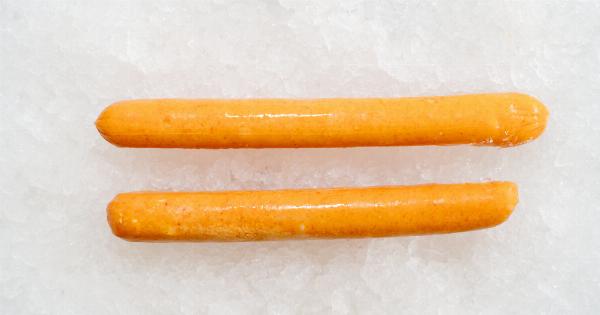Dogs are not only our pets but also our family members. It is our responsibility to give them the best care and nutrition possible to ensure a happy and healthy life.
Becoming a nutrition expert for your dog is an important step towards achieving this goal.
Basics of Canine Nutrition
Before we dive into the details of creating a balanced and nutritious diet for your dog, let’s first understand the basics of canine nutrition.
A dog’s nutritional requirements vary depending on factors like their age, size, activity level, and breed. However, there are some essential nutrients that all dogs need in their diet to maintain optimal health:.
- Protein
- Fats
- Carbohydrates
- Vitamins
- Minerals
- Water
Proteins are the building blocks of the body, and they are essential for the growth and repair of tissues. Dogs need high-quality animal-based proteins like chicken, turkey, beef, fish, and eggs in their diet.
Fats are important for energy production, absorption of vitamins, and maintenance of healthy skin and coat. Dogs need both saturated and unsaturated fats in their diet, which can be obtained from sources like meat, fish, and plant oils.
Carbohydrates provide energy and fiber to dogs and can be obtained from sources like whole grains, vegetables, and fruits.
Vitamins and minerals are essential for various bodily processes like bone formation, immune system function, and blood clotting. Dogs need a balanced mix of vitamins and minerals in their diet, which can be obtained from whole foods or supplements.
Finally, water is the most essential nutrient for dogs. It helps regulate body temperature, aids digestion, and facilitates various chemical reactions in the body.
Creating a Balanced and Nutritious Diet for Your Dog
Commercial dog food is convenient and provides a balanced mix of nutrients for dogs. However, many dog owners prefer to create homemade meals for their furry friends to have more control over the ingredients and quality of the food.
If you are considering a homemade dog food diet, it is essential to work with your veterinarian or a veterinary nutritionist to ensure that the diet meets all your dog’s nutritional requirements.
It is also important to note that homemade diets require more effort and time to prepare and may be more expensive.
Here are some tips for creating a balanced and nutritious diet for your dog:.
1. Choose High-Quality Ingredients
The quality of the ingredients you use in your dog’s diet is paramount. Always choose high-quality, fresh, and clean ingredients that are safe for your dog to consume.
Avoid ingredients that are processed, contain preservatives or artificial colors, or are spoiled or contaminated.
2. Balance Macronutrients
Ensure that the diet contains a balanced mix of proteins, fats, and carbohydrates to meet your dog’s energy needs and maintain optimal health.
The exact ratio of macronutrients varies depending on factors like your dog’s age, size, and activity level. Again, consulting with a veterinary nutritionist can help you determine the ideal macronutrient ratio for your dog’s diet.
3. Include Variety
Incorporate a variety of protein sources, grains, vegetables, and fruits in your dog’s diet to ensure they get a mix of essential nutrients.
Try to rotate protein sources and vary the types of grains and vegetables you use in the diet to prevent boredom and food intolerances.
4. Supplement as Needed
Your dog’s diet may require additional supplementation to meet their nutritional needs.
Discuss with your veterinarian whether your dog needs additional vitamins, minerals, and supplements, and choose high-quality supplements with the guidance of a veterinary nutritionist.
5. Watch Portion Sizes
Portion sizes are crucial for maintaining a healthy weight for your dog. Overfeeding can lead to obesity and other health issues, while underfeeding can lead to malnourishment.
Follow portion size guidelines recommended by your veterinarian or veterinary nutritionist and adjust the sizes as needed based on your dog’s age, size, and activity level.
Conclusion
Becoming a nutrition expert for your dog is an important step towards ensuring a happy and healthy life for your furry friend.
Understanding the basics of canine nutrition and creating a balanced and nutritious diet can go a long way in improving your dog’s health and overall wellbeing. Consult with your veterinarian or veterinary nutritionist for guidance and support in creating a personalized nutrition plan for your dog.




























